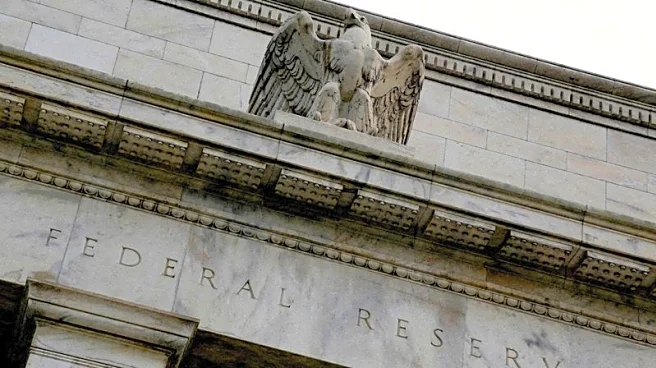(Reuters) - Concern about a softening job market will keep the Federal Reserve on course to resume its interest rate cuts next week, though the U.S. central bank is likely to move cautiously because of fresh
signs that tariffs are pushing prices higher.
That was the bet in financial markets on Thursday after government reports showed jobless claims jumped last week and consumer inflation rose more than expected in August, with particularly big increases in the prices of goods like furniture and cars that are heavily impacted by import duties. Consumer prices rose 2.9% last month on a year-over-year basis, matching the rise in the comparable period in July. The Fed targets 2% inflation by a different, though related, measure.
"Inflation remains hotter than hoped, but the Fed's focus is jobs," James Knightley, chief international economist at ING, wrote in a note, adding that the weekly increase in unemployment claims was the biggest in almost four years. "On the face of it, this hints at a pick-up in the pace of layoffs in an environment of already weak hiring and will reaffirm expectations of a 25-bp (basis point) Fed rate cut next week."
Rate futures pricing reflects expectations for quarter-percentage-point rate cuts at each of the Fed's three remaining policy meetings this year, starting with a reduction in the Fed's policy rate to the 4.00%-4.25% range at the September 16-17 gathering.
Bets also rose on the prospect that the Fed would deliver a fourth consecutive rate cut in January, with the odds on that outcome approaching 50%, up from less than 40% before the data on Thursday.
Economists polled by Reuters before the latest data largely expected the Fed to cut rates twice in the rest of 2025. President Donald Trump has called for far steeper rate cuts.
(Reporting by Ann Saphir; Editing by Aidan Lewis and Paul Simao)










